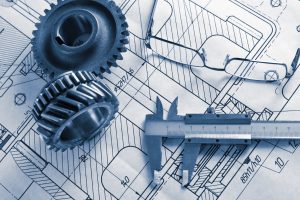
The whole purpose of an ERP system is to be able to plan and capture the business transactions accurately. These results are used for forecasting, accounting, and reporting. The ERP does this by mirroring the processes of your organization. Manufacturers want to survive in the market must be able to change direction at a moment’s notice, without encountering their significant loss in the quality of production.
Manufacturing agility is the ability to respond quickly to unpredictable changes in demand. The most competitive manufacturers recommended it’s also a requirement for day-to-day survival. Enterprise resource planning (ERP) applications can help small and mid-size manufacturer’s respond with unprecedented agility, no matter what customers might demand.
ERP Gold can help the organizations to reach towards lean manufacturing capabilities and just-in-time production principals, through these ways:
Clear, Cross-Organizational Process Visibility:
Many small and mid-size manufacturers were use accounting software as their main method of managing, what’s going on in the organization. The problem was this approach is that, although valuable, accounting software won’t provide the clear, cross-organizational view necessary to help the decision makers respond to current and future demands.
A well-integrated ERP application can provide insight into customer purchasing history, real-time sales order processes, and production levels. So, decision makers can respond quickly to changes in customer demand or in general market conditions.
Flexible Production Scheduling:
The trademark of an agile manufacturer is the ability to switch gears quickly between production runs, shortening or lengthening the run and even changing products, as necessary.
An ERP application makes it easier for the organizations to adopt this type of flexibility by providing them scheduling strategies to handle unexpected orders or order changes through features such as capacity planning, work order management, and materials requirements planning etc.
Automating Manufacturing Capabilities:
An important area in which ERP can really pay off for small and mid-size manufacturers is the ability to automate processes and functions of manufacturing that don’t require human interaction. Nearly two-thirds of small and mid-size manufacturers are still using the manual tracking processes, which can introduce errors and duplications that interfere with the agility of the manufacturing processes.
By automating manufacturing processes and transactions, those manufacturers can free human resources for more lucrative activities, such as product design, innovation, and sales etc.
Improve Inventory Visibility:

To be an agile manufacturer, companies must have the ability to move from manufacturing one product to another with minimal delay and manufacturing time lost. ERP provides help to organizations with a single source for accurate data about inventory availability across the organization.
Instead of trying to maintain spreadsheets and paper logs of which materials or products are available, an ERP application can maintain that data in real-time, making it more accurate and current than manual inventory management.
Contribute to Customization:
Small and mid-size manufacturers often reach for agility is to be able to serve more customers with customized, short-run (and sometimes single-run) manufacturing services.
This customization can be accomplished with an ERP application that helps the organizations streamline the manufacturing process. Therefore, the interchangeable components of the process are monitored closely, and those components that aren’t interchangeable can be switched to create a custom product when necessary.